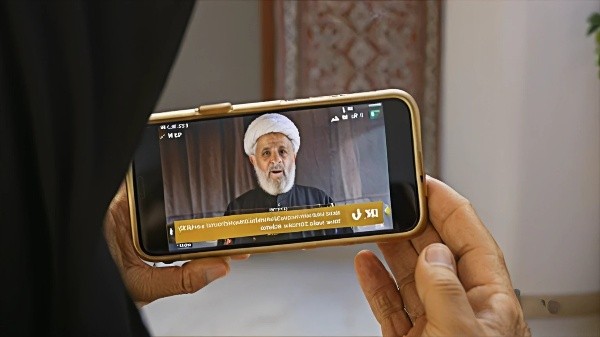Iran’s Plan to Strike Back Against the U.S.
Iran’s Military Preparations Following U.S. Attacks
Loading...

Sheikh Naim Qassem has reportedly replaced deceased leader Hassan Nasrallah
Sheikh Naim Qassem Succeeds Hassan Nasrallah
Hezbollah has officially announced the appointment of Sheikh Naim Qassem as its new leader, replacing the late Hassan Nasrallah, as reported by prominent media outlets, including Al Jazeera and Al-Arabiya. The announcement comes in the wake of significant turmoil within the organization, including the recent deaths of key figures in the group due to Israeli airstrikes.
Background on the Leadership Change
Sheikh Naim Qassem, who has long been a trusted deputy to Nasrallah, has been serving as the acting leader of Hezbollah since the latter’s death. This transition marks a pivotal moment for the group, which has faced increased military pressure from Israel amidst ongoing regional tensions. Al-Arabiya highlighted that Qassem was chosen for his unwavering commitment to Hezbollah's foundational principles and objectives.
At 71 years old, Qassem has been a prominent figure within Hezbollah since its inception in the early 1980s and is often referred to as the group’s "number two." His deep-rooted involvement in the organization has equipped him with the insight and experience necessary to lead amid the ongoing conflict.
Recent Conflicts and Military Operations
The backdrop of this leadership change is characterized by escalating hostilities between Israel and Hezbollah. The tensions flared significantly after the surprise attack by Hamas against Israel on October 7, 2023, prompting a robust military response from the Israeli Defense Forces (IDF). In the months following the attack, Israel has launched a series of operations targeting Hezbollah, including the recent Operation Northern Arrows aimed at dismantling the group’s military capabilities in southern Lebanon.
Reports from the IDF and Israeli Foreign Ministry claim that their recent airstrikes have successfully “eliminated” many of Hezbollah’s senior military leaders, further destabilizing the organization. This military pressure has created a challenging environment for Hezbollah as it navigates both internal leadership changes and external threats.
The Legacy of Hassan Nasrallah
Hassan Nasrallah, who led Hezbollah since 1992, was killed in an airstrike in Beirut late last month. His leadership was marked by significant influence over both military and political spheres in Lebanon and beyond. Following his death, Hashem Safieddine, who was viewed as a potential successor, was also killed shortly thereafter, leaving Qassem to step into the leadership role at a critical juncture.
Qassem's Position and Statements
As the new leader, Sheikh Naim Qassem has voiced support for pursuing a ceasefire with Israel, signaling a potential shift in Hezbollah’s approach amidst ongoing conflicts. His statements reflect a desire to stabilize the group’s position while maintaining its core principles.
In a notable move, Qassem has reportedly relocated to Tehran, Iran, since early October, following concerns about potential assassination attempts by Israeli forces. This decision highlights the precarious situation for Hezbollah leaders and underscores the continued volatility in the region.
Conclusion
The appointment of Sheikh Naim Qassem as Hezbollah’s leader marks a significant transition for the organization as it faces both internal challenges and external threats. With a long-standing history within the group and a commitment to its foundational goals, Qassem's leadership will be closely scrutinized as Hezbollah navigates a complex geopolitical landscape in the months to come.
Editor
Iran’s Military Preparations Following U.S. Attacks
Troops remain in five strategic locations, raising fears of renewed tensions and long-term occupation.
Opposition forces have taken control of the capital after a significant offensive. Here is how it unravelled.
